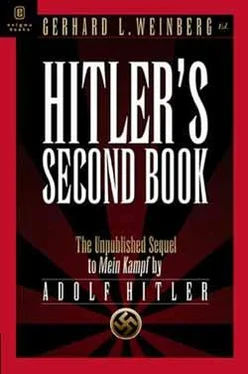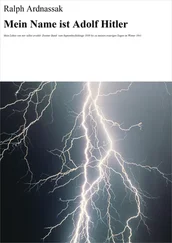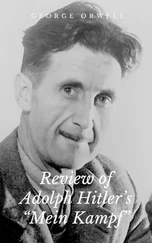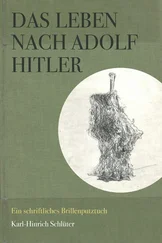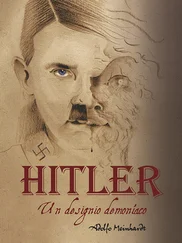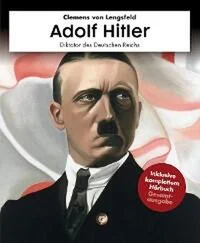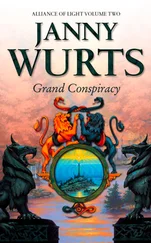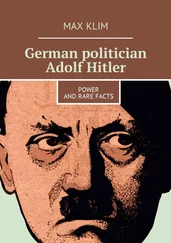Precisely thereby is the way open to decay in which the inner strength of such a Folk swiftly disappears, all racial, moral and folk values are earmarked for destruction, ideals are undermined, and in the end the prerequisite which a Folk urgently needs in order to take upon itself the ultimate consequences of the struggle for world markets is eliminated. Weakened by a vicious pacifism, Folks will no longer be ready to fight for markets for their goods with the shedding of their blood. Hence, as soon as a stronger nation sets the real strength of political power in the place of peaceful economic means, such nations will collapse Then their own delinquencies will take revenge. They are overpopulated, and now in consequence of the loss of all the real basic requirements they no longer have any possibility of being able to feed their overgrown mass of people adequately. They have no strength to break the chains of the enemy, and no inner value with which to bear their fate with dignity. Once they believed they could live, thanks to their peaceful economic activity, and renounce the use of violence. Fate will teach them that in the last analysis a Folk is preserved only when population and living space stand in a definite natural and healthy relation to each other. Further, this relation must be examined from time to time, and indeed must be reestablished in favour of the population to the very same degree that it shifts unfavourably with respect to the soil.
For this, however, a nation needs weapons. The acquisition of soil is always linked with the employment of force.
If the task of politics is the execution of a Folk’s struggle for existence, and if the struggle for existence of a Folk in the last analysis consists of safeguarding the necessary amount of space for nourishing a specific population, and if this whole process is a question of the employment of a Folk’s strength, the following concluding definitions result therefrom:
Politics is the art of carrying out a Folk’s struggle for its Earthly existence.
Foreign policy is the art of safeguarding the momentary, necessary living space, in quantity and quality, for a Folk.
Domestic policy is the art of preserving the necessary employment of force for this in the form of its race value and numbers
Chapter 3
RACE AND WILL IN THE STRUGGLE FOR POWER
Here at this point I want to discuss that bourgeois concept which views power chiefly as a nation’s supply of weapons, and, to a lesser degree, perhaps also the army as an organisation. If the concept of these people were pertinent, that is, if the power of a nation really lay in its possession of arms and in its army as such, then a nation which has lost its army and weapons through any reasons whatsoever must be done for permanently.
These bourgeois politicians themselves hardly believe that. By their very doubt of this they admit that weapons and army organisation are things which can be replaced; and that consequently they are not of a primary character, that there is something which stands above them, and which at least is also the source of their power.
And so it is. Weapons and army forms are destructible and are replaceable. As great as their importance perhaps is for the moment, just so is it limited when viewed over longer periods of time. What is ultimately decisive in the life of a Folk is the will to self preservation, and the living forces that are at its disposal for this purpose.
Weapons can rust, forms can be outdated; the will itself can always renew both and move a Folk into the form required by the need of the moment. The fact that we Germans had to give up our arms is of very slight importance, insofar as I look at the material side of it. And yet this is the only thing our bourgeois politicians see. What is depressing about the surrender of our arms, at most, lies in the attendant circumstances in which it took place, in the attitude which it made possible, as well as in the wretched manner of doing it which we experienced. It is outweighed by the destruction of the organisation of our Army. But even there the major misfortune is not the elimination of the organisation as the bearer of the weapons we possess, but rather the abolition of an institution for the training of our Folk to manliness, which was possessed by no other State in the world, and which, indeed, no Folk needed more than our Germans. The contribution of our Old Army to the general disciplining of our Folk for the highest achievements in all fields is incommensurable. Precisely our Folk, which in its racial fragmentation so very much lacks qualities which, for example, characterise the English
— a determined sticking together in time of danger — has received at least a part of this, which in other nations is a natural, instinctive endowment, by way of its training through the army. The people who chatter so happily about socialism do not at all realise that the highest socialist organisation of all has been the German Army.
This is also the reason for the fierce hatred of the typical capitalistically inclined Jews against an organisation in which money is not identical with position, dignity, to say nothing of honour, but rather with achievement; and in which the honour of belonging among people of a certain accomplishment is more greatly appreciated than the possession of property and riches. This is a conception which to Jews seems as alien as it is dangerous, and which, if only it became the general patrimony of a Folk, would signify an immunising defence against every further Jewish danger. If, for example, an Officer’s rank in the Army could be bought, this would be comprehensible to Jews. They cannot understand an organisation — indeed they find it weird — which surrounds with honour a man who either possesses no property at all, or whose income is only a fragment of that of another man who precisely in this organisation is neither honoured nor esteemed. But therein lay the chief strength of this incomparable old institution which unfortunately in the last thirty years of peace, however, also showed signs of slowly becoming corroded. As soon as it became fashionable for individual Officers, especially of noble descent, to pair off with, of all things, department store Jewesses, a danger arose for the Old Army which, if the same development continued, might have some day grown into a great evil. At any rate, in the times of Kaiser Wilhelm I, there was no understanding for such events. Nevertheless, all in all, the Germany Army at the turn of the century was the most magnificent organisation in the world, and its effect on our German Folk one that was more than beneficial. The breeding ground of German discipline, German efficiency, forthright disposition, frank courage, bold aggressiveness, tenacious persistence and granite honourableness.
The conception of honour of a whole profession slowly but imperceptibly became the general patrimony of a whole Folk.
That this organisation was destroyed through the Peace Treaty Of Versailles was all the worse for our Folk, as our internal enemies thereby finally received a free path for effecting their worst intentions. But our incompetent bourgeoisie, for lack of any genius and ability to improvise, could not even find the most primitive substitute.
Thus, to be sure, our German Folk has lost possession of arms and their bearer. But this has been the case countless times in the history of nations, without the latter having perished because of it. On the contrary: nothing is easier to replace than a loss of weapons and every organisational form can again be created or renewed. What is irreplaceable is the spoiled blood of a Folk, the destroyed inner value.
For in opposition to the present bourgeois conception that the Treaty Of Versailles has deprived our Folk of arms, I can reply only that the real lack of weapons lies in our pacifistic democratic poisoning, as well as in internationalism, which destroys and poisons our Folk’s highest sources of power. For the source of a Folk’s whole power does not lie in its possession of weapons or in the organisation of its army, but in its inner value which is represented through its racial significance, that is, the racial value of a Folk as such, through the existence of the highest individual personality values, as well as through its healthy attitude toward the idea of self preservation.
Читать дальше
